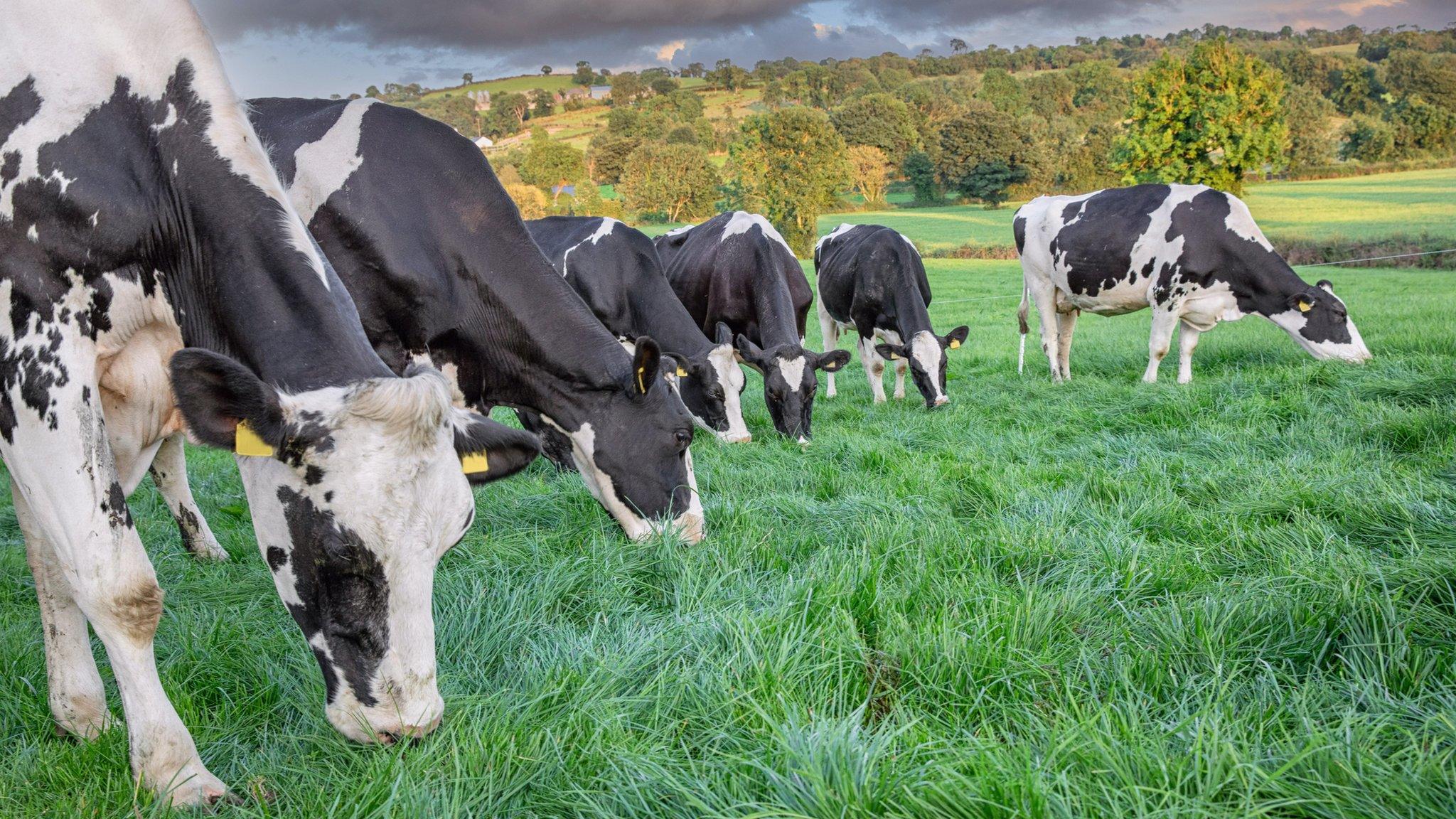Mushroom industry in Northern Ireland could disappear, body warns
- Published

Mushroom farms have been heavily dependent on workers from eastern and central Europe
The Northern Ireland mushroom industry will disappear unless migration rules are relaxed, an industry body has warned.
The Northern Ireland Mushroom Growers Association (NIMGA) is asking for mushroom pickers to be added to the Shortage Occupation List (SOL).
Inclusion on the SOL means that a job can pay less than usually required under UK migration rules.
A government spokesperson said the SOL is currently under review.
NIMGA represents eight mushroom farms in Northern Ireland, which are all based in the border region.
Mushroom farms have been heavily dependent on workers from eastern and central Europe.
Post-Brexit migration rules mean that it is now very difficult for people from the EU to migrate to the UK to take up low-paid work.
Cumulative impact
Chair of NIMGA Frank Donnelly said mushroom farms had repeatedly sought to recruit local workers, but "despite our best efforts, this is not producing the numbers required to meet the demand".
"We are currently sitting with a vacancy rate of 15.8%, which ultimately drives costs up and means we are not able to be as competitive as growers in other regions.
"Our farms are resilient but the cumulative impact of the lack of access to labour, rising business costs as well as lack of competitive playing field with our neighbours in the Republic of Ireland means that farmers are increasingly faced with the prospect of closure or moving operations to the south."
To be included on the SOL, a role must not only be skilled and in shortage; it must also be sensible to include it on the list in the context of alternative solutions to tackling the shortage, other than through immigration.
Inclusion on the SOL means lower visa application fees and lower salary requirements, but does not exempt an occupation from meeting the wider requirements of the skilled worker visa route, such as having a sponsored job offer and English language skills.
A government spokesperson said it works closely with the Migration Advisory Committee (MAC) to ensure its points-based system delivers for the UK.
It added it aims to work "in the best interests of the economy by prioritising the skills and talent we need and encouraging long-term investment in the domestic workforce".
"The MAC is reviewing the Shortage Occupation List to ensure it reflects the current labour market and we will consider any recommendations it makes," they said.
Related topics
- Published24 March 2022
